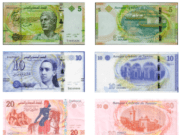The Federal Inland Revenue Service has discontinued the issuance of tax exemption certificates to all categories of taxpayers, including pioneer status companies, non-governmental organisations, and free zone entities.
In a public notice signed by its Executive Chairman, Zacch Adedeji, the agency declared that no further tax exemption certificates would be issued, warning that previously granted certificates would remain valid only until their expiry dates, after which renewals would no longer be allowed.
“The issuance of Tax Exemption Certificates has been discontinued. Consequently, no further Tax Exemption Certificates will be issued,” the public notice read. The FIRS noted that all future claims for tax benefits or exemptions must now comply strictly with applicable laws and follow procedures approved by the Service.
It also cautioned that any attempt to forge, alter, or misrepresent exemption status would attract stiff penalties as prescribed by law.
Reaffirming its commitment to transparency, the agency urged all stakeholders to align with the revised rules and obligations.
“All further enquiries on the above subject should be addressed to the Executive Chairman,” the notice added. This policy shift comes amid growing concerns over Nigeria’s rising tax expenditure and the lack of reliable data to assess its economic impact.
Adedeji had recently decried the difficulty in quantifying revenue losses from tax incentives, attributing it to poor coordination among government agencies and the absence of a unified monitoring framework.
In 2021, it was reported that the Federal Government lost over N6tn through various tax waivers and incentives granted under the Pioneer Status Incentive scheme and similar frameworks.
The PUNCH recently reported that the total number of local and foreign companies exempted from remitting tax revenue to government coffers increased to 105 as of December 2024. Dangote Fertilisers, Mikano International Limited, and 103 others are included in this list.
This came amid uncertainties over the programme’s effectiveness and the government’s announced plan to discontinue the policy as part of a broader strategy to boost its dwindling revenue base.
The Federal Government, through the Nigerian Investment Promotion Commission, approved tax holidays for 22 new companies under the Pioneer Status Incentive scheme, raising the total number of beneficiaries to 105 in the final quarter of the year.
This comes after the number of participating firms rose to 104 in the first quarter, declined to 88 in the second quarter, and dropped to 83 in the third quarter.
Findings by The PUNCH also revealed that since the Chairman of the Presidential Tax Reform Committee, Taiwo Oyedele, announced in September 2023 that the committee would conduct a comprehensive review of tax waivers, aligned with the roadmap set by the previous administration, a total of 25 companies have received regulatory approval for tax exemption for the next three years.
The pioneer status is an incentive offered by the Federal Government, which exempts companies from paying income tax for a certain period. This tax exemption can be full or partial.
Recently, Adedeji at the 2025 Tax Expenditure Workshop revealed that revenue lost to tax expenditure remains difficult to quantify due to poor data availability across relevant government agencies.
He said this is because tax incentives are not properly weighed against their real economic benefits, which makes it hard to know their true cost and creates room for unverified tax expenditure figures in different quarters.
Adedeji said, “It has been argued that the government is losing revenue through tax incentives, which have been difficult to quantify due to limited data availability. In granting tax incentives by the government, there are expected benefits to be derived from the entities that enjoy these incentives, such that if adequately quantified when analysing the Tax Expenditures in terms of socio-economic impact will show that the actual financial cost to government vis – a viz benefits will be minimised, and a positive developmental curve or growth curve will be observed.”
To address the ongoing challenges, the government proposed four new tax bills (which have been approved into law) aimed at stimulating economic growth and attracting investment, including a new tax credit scheme (the Economic Development Incentive) intended to replace the existing Pioneer Status Incentive. However, the legislative process has stalled at the National Assembly, delaying implementation.
Oyedele earlier said the development incentive is designed to stimulate real economic activity by tying tax relief directly to verifiable investments.
Credit: punchng.com











































































